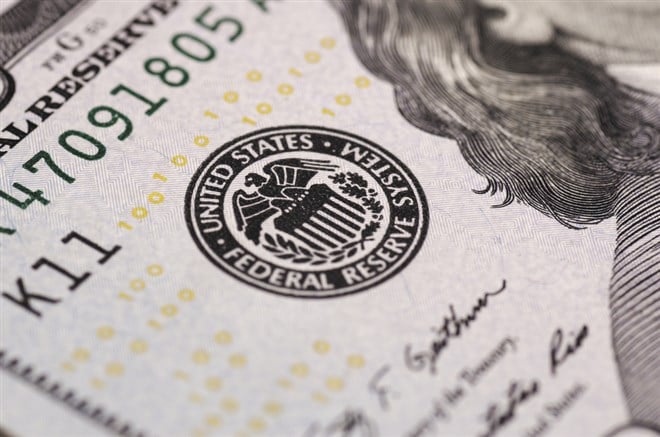Don't Miss Out: $2 Trillion Could be Headed to the Banking SectorUp to $2 trillion in liquidity could flow to banks in the financial services sector. Here's how you can position your portfolio.
This story originally appeared onMarketBeat

Analysts atJP Morgan (NYSE: JPM)年代aid yesterday that up to $2 trillion in liquidity could be added to the US banking system,as reportedbyBloomberg.
Funds will be made available through theFederal Reserve's Bank Term Funding Programthat was announced as banks face a liquidity crunch.
A lack of liquidity was chalked up as the reason for therecent collapseofSilicon Valley Bank (NASDAQ: SIVB), as well asSignature Bank (NASDAQ: SBNY)and the Fed seems determined to prevent this contagion from spreading to the rest of the US banking system.
The lack of liquidity by banks can be broadly surmised to be a mismatch in investment maturities and cash flow, as well as the difference between short and long interest rates. However, it was also noted by analysts at JP Morgan that the largest banks in the US still held around $3 trillion in US reserves, and that it was "unlikely" they would need to tap into the program.
Instead, it was predicted that smaller banks and other lenders with weaker balance sheets will be the ones asking for help, as well as companies that potentially do not strictly need the facility. Bloomberg took commentary from other analysts who also stated that the uptake of the program is expected to be significant.
Which banks will likely need it?
The falling stock prices of banking shares could see some relief as the Fed will publish the names of entities that receive funding from the program weekly.
Morningstar reported yesterday that regional banks are年代truggling with liquiditythe most, such asFirst Republic Bank (NYSE: FRC)andHuntington Bancshares (NASDAQ: HBAN).
The implication here is twofold: smaller regional lenders with high loan-to-deposit ratios that take the Fed's hand will see some relief in their stock prices as this information is made publicly available.
Likewise, a rotation in investors' portfolios is likely to take place as people takeincreasingly defensiveposturing. Instead of owning shares in smaller banks, people will rotate to those that offer a higher margin of safety, such asBank of America (NYSE: BAC)orCitigroup (NYSE: C).
Why else is liquidity important?
Banks are incentivized to take the facility for more than just securing their books. Liquidity is fundamentally how banks make money, and with scaling liquidity comes scaling revenues and earnings.
Banks can issue more loans and purchase additional investments when it has higher levels of liquidity, leading to more profits. Institutions can also borrow funds at a lower cost since their lenders consider it less risky, increasing the net interest margin.
Thus, in an abstract way, the funding program could be seen as a stimulus program for banks, and it seems likely that they will see it that way too. Businesses of all stripes and financial health took up stimulus packages during the pandemic just to be on the safe side and to preserve cash flow. Nervous and ambitious banking executives seeing the liquidity crunch unfold are incentivized to apply for a myriad of reasons. Thus, a recovery for银行股年代eems likely across the board.
What's next?
The steady path towards higher interest rates and lower inflation may have hit a snag, as the Fed seems less inclined to raise rates while also lending a hand to banks in times of increased uncertainty.
Due to these reasons the bond market has rallied as investors take shelter. TheVanguard Total Bond Market ETF(NASDAQ: BND)is up 2.44% over the past five days.
If volatility continues, however, banks may face higher borrowing costs if investors begin to demand higher yields in exchange for taking on additional risk. Bond prices are also inversely correlated to interest rates, which is part of the reason why they have rallied over the past week since the Fed is unlikely to hike them further in the short term.
Smaller banks may also find themselves in a deeper liquidity hole if investors' appetites become even more bearish and turn away from bonds due to losing their stable footing, thus leavingprecious metalslike gold as becoming a more attractive alternative.










